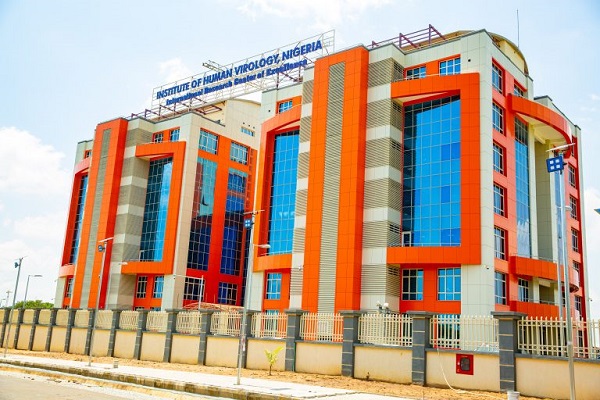
The Institute of Human Virology Nigeria (IHVN) has significantly bolstered Nigeria’s public health sector over the past two decades through strategic partnerships with both local and international organisations. The institute, which commemorates 20 years of excellence in public health implementation, capacity building, and research, continues to be a driving force in addressing some of the country’s most pressing health challenges.
Speaking at a media briefing in Abuja to mark the anniversary, CEO of IHVN, Dr. Patrick Dakum attributed the institute’s success to collaboration with key stakeholders, including global health organisations and Nigerian government agencies.
“We have worked with all 36 state governments at various times, and we’re deeply grateful for their support. Equally important have been our partnerships with the private sector and global partners, such as the US Centers for Disease Control and Prevention (CDC), the Global Fund, the Bill and Melinda Gates Foundation, and the National Institutes of Health (NIH). These collaborations have been critical in enabling us to achieve our public health goals,” Dakum explained.
These partnerships have not only provided essential funding but also brought technical expertise and innovative approaches to combat health issues like HIV/AIDS, tuberculosis, and malaria. Dakum noted that, through these collaborations, IHVN has been able to establish two key institutions: the Public Health Implementation Center and the International Research Center of Excellence. Both centres are instrumental in expanding public health capacity and conducting cutting-edge research.
“Beyond just treating patients, we’re building capacity through training in clinical management and palliative care, and we’re conducting groundbreaking research to inform policy and improve healthcare delivery,” Dakum added.
One of IHVN’s most significant contributions has been in the area of palliative care. With support from international donors, the institute has trained healthcare workers across Nigeria to provide compassionate, patient-centred care for individuals with life-limiting illnesses. This initiative has brought dignity and comfort to thousands of patients and their families.
As the institute looks to the future, Dakum announced plans to expand its impact by developing a learning and development centre that will offer degree-awarding programs in partnership with universities, both locally and abroad. “This will help further our goal of building a skilled healthcare workforce capable of meeting Nigeria’s evolving health challenges,” he said.
While IHVN’s achievements are noteworthy, Dakum emphasised that the true impact lies in the lives saved and improved. “Behind every statistic is a human being whose quality of life has been enhanced, and this is what gives us the most joy,” he remarked.
However, Dakum also warned against the complacency of short-term successes. He stressed the importance of continuity in healthcare policies, particularly those that have proven effective in addressing health crises.
“Anything that has been established that is good, build on it if you are in a leadership position. Don’t think you have to change everything just because you’re in charge. This mentality can be detrimental to the long-term success of our public health programmes,” he advised.
IHVN’s success story began in 2004 with a grant from Professor William Blattner, then director of the epidemiology division at the University of Maryland’s Institute of Human Virology. The institute was created to address the HIV/AIDS crisis in Nigeria by developing infrastructure for treatment, care, prevention and support for those living with and affected by the disease. Over time, IHVN expanded its services to include other infectious and non-infectious diseases, continuously adapting to Nigeria’s public health needs.
In addition to its clinical work, IHVN has been at the forefront of capacity building. Since 2004, the institute has provided HIV testing services to over 18 million people and life-saving antiretroviral treatment to more than 600,000 individuals. It has also trained over 50,000 healthcare workers and provided tuberculosis services to over 300,000 individuals.
The institute’s 20th-anniversary celebration is not just a reflection on past achievements but a call to action for continued collaboration. “Some of our greatest successes can only be measured by the beneficiaries we have supported over the years,” Dakum said. He added that IHVN has leveraged financial support from funding agencies and partnerships with all levels of government to put smiles on the faces of many Nigerians.
As IHVN moves forward, it remains committed to its mission of improving health outcomes in Nigeria and West Africa. The institute called for continued partnerships with stakeholders in both the public and private sectors to address the growing health needs of the region.
In his concluding remarks, Dakum thanked the University of Maryland for its ongoing technical guidance and praised the dedication of IHVN’s staff and partners. “We have made great strides, but there is still much to do. Together, we can continue to build a healthier Nigeria and a healthier West Africa,” he concluded.

